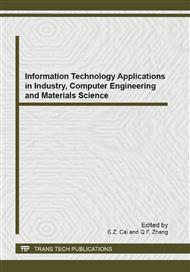p.2111
p.2115
p.2120
p.2125
p.2131
p.2137
p.2142
p.2147
p.2152
Scheduling of Periodic Tasks with Data Dependency on Multiprocessors
Abstract:
This article studies the scheduling problem of a set of tasks with time or data constraints on a number of identical processors with full connections. We present an algorithm, in which a set of static schedule lists can be obtained, each for a processor, such that each task starts executing after its release time and completes its computation before its deadline, and all the precedence relations between tasks resulting from data dependency are satisfied. The data dependency relations between tasks are represented by Synchronous Dataflow Graphs (SDF) as they can indicate tasks concurrency and enable effective scheduling on multiprocessor platforms. The SDF, however, does not support the time constraints of tasks directly, thus an adaption is applied to conform to the time limits. With this adaption, the periodic tasks of implicit-deadline or constrained-deadline can be scheduled on multiprocessor platform effectively.
Info:
Periodical:
Pages:
2131-2136
Citation:
Online since:
September 2013
Authors:
Keywords:
Price:
Сopyright:
© 2013 Trans Tech Publications Ltd. All Rights Reserved
Share:
Citation:


